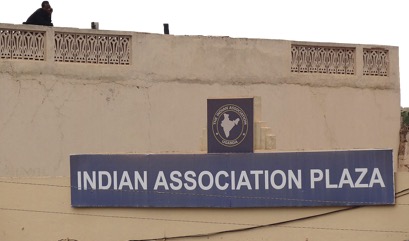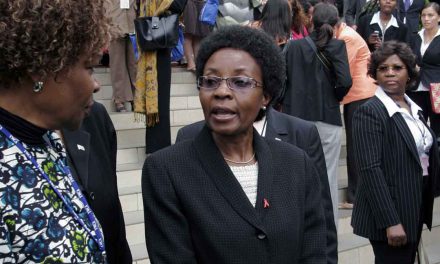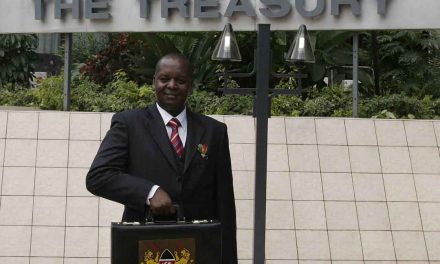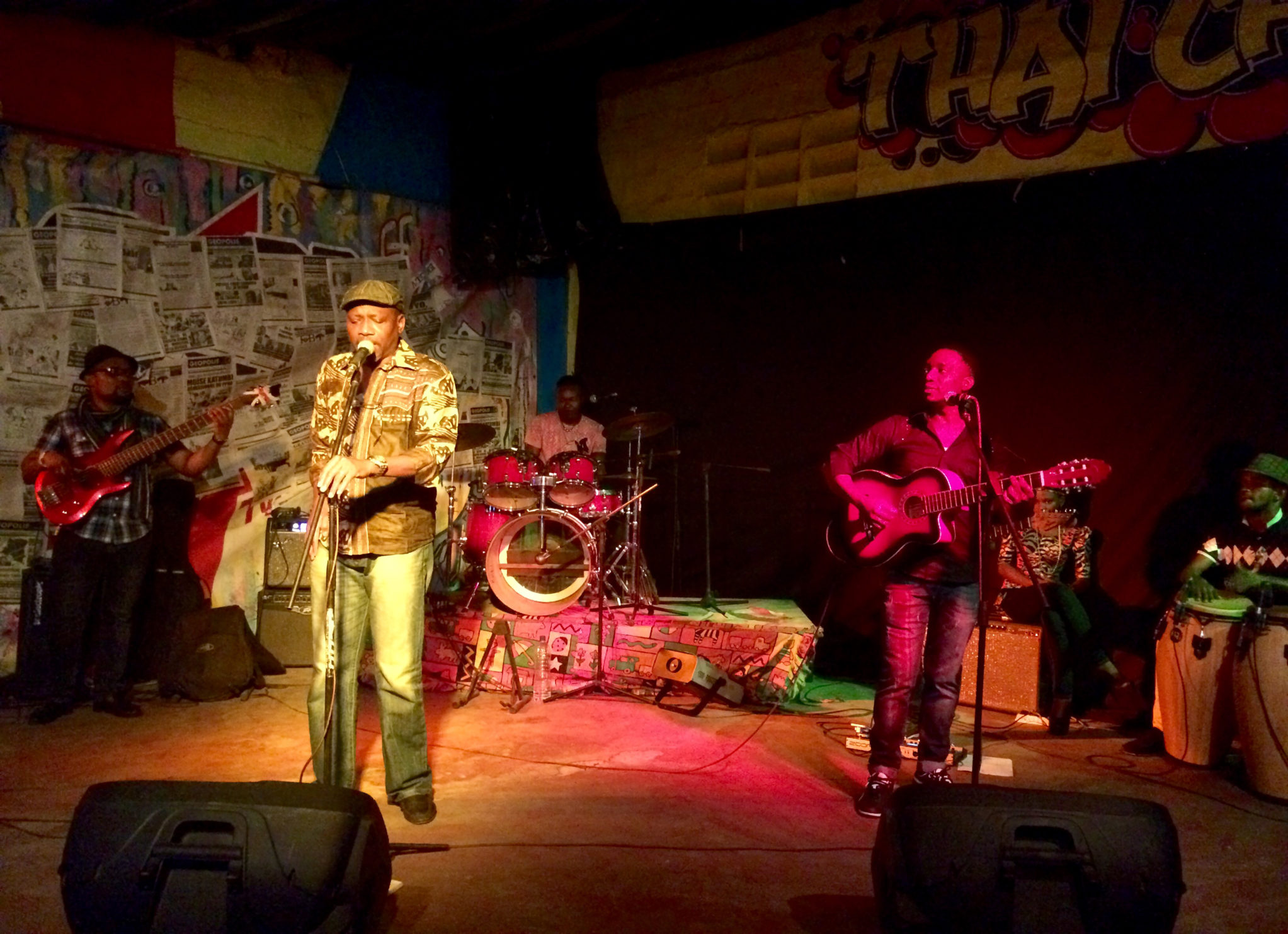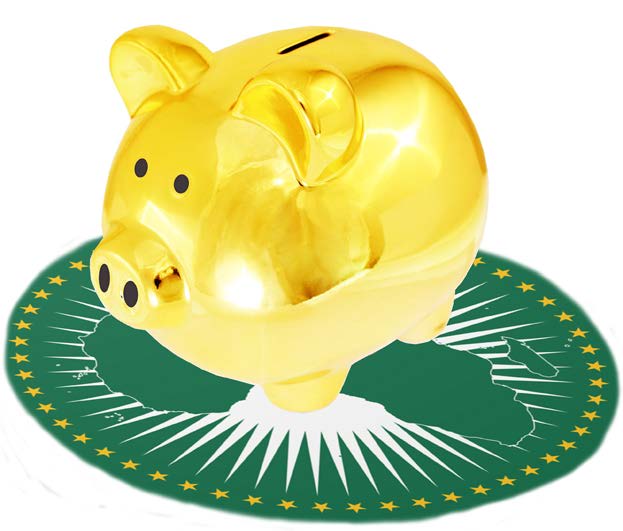
With member states failing to cough up dues, the African Union is perennially short on funds
In July 2016, at its summit in Kigali, Rwanda, the African Union (AU) unveiled a new funding model. The new fiscal plan was expected to raise about $1,2 billion annually — or nearly triple the AU’s current budget. Commenting on it, the AU Commission said the institution was ready to shed its dependence on foreign donations. The AU had made “some progress” in this regard, but should look to finalising its decisions on “sustainable financing” said the Commission’s chairperson, South Africa’s Nkosazana Dlamini-Zuma.
But the announcement raised questions. Many AU member countries do not pay their annual dues, or pay them late. For years most of the AU’s budgets and programmes have been financed by foreign donors, including the European Union, the US, China, the World Bank and the United Kingdom, according to its financial statements. While the AU’s budget grew from $278,2 million in 2013 to $393,4 million in 2015, external financing also rose from 56% to 61,7% in the corresponding years. This is according to the Southern African Legal Information Institute (SALII), which documents AU policies. This year the proportion of foreign funding fell slightly to 59% of the AU’s $416,8 million total budget, SALII said, but the amount paid by external parties still constituted the majority of the institution’s income.
“If African nations cannot fund the AU’s budget, it says something that is not complimentary,” Chris Ngwodo, an Abuja-based international affairs analyst and columnist, told Africa in Fact. “If, decades after African nations got independence from colonial powers in the 1960s … we are still receiving outside funding for [the] AU, it is difficult to think of [the] AU as a serious coalition of member nations.” Defaulting African nations would need to review their AU memberships if they found they could not fund its programmes, Ngwodo added.
Getting African nations to meet their financial obligations to the AU hasn’t always been easy. According to a formula adopted by the bloc, five countries Algeria, Egypt, Libya, Nigeria, and South Africa cover at least 66% of the member states’ share of the budget. The AU categorises its member states in three tiers, depending on the size of their economies. The members of the top tier, which includes the five countries mentioned previously, are each expected to pay 12% of the member states’ quota, according to the AU’s records. In 2015, that quota translated to $17 million for South Africa and $16,96 million for Nigeria. Knowing who doesn’t pay among the lower tiers is not straightforward, as the AU is reluctant to name and shame. Africa in Fact’s request to the AU secretariat in October 2016 for payment records did not receive a response.
However recent figures from the Centre for Citizens’ Participation in the African Union, which campaigns for the financing of Africa’s integration and development, show that the most indebted were Kenya, Ghana, Libya and Cameroon, as of 30 September 2013. Other countries in arrears were Niger, Mauritania, Mali, Madagascar, Guinea Bissau, Malawi, the Democratic Republic of the Congo and Côte d’Ivoire.
Kenya owed $3,02 million while Ghana and Cameroon owed $1,3 million and $2,9 million respectively. Only 19 member states had cleared their dues, while four — Gabon, Zambia, Nigeria, and Ethiopia — had also paid a proportion of dues in advance for 2014.
Mehari Maru, an independent consultant in human rights law and member of the AU high-level advisory group, told Rwanda-based The New Times in September 2016 that on average “three to five countries default” each year. He listed “Madagascar, Democratic Republic of the Congo, Equatorial Guinea, and others” as countries that had been late to pay their contributions. Libya has reduced its contributions in recent years and no longer pays its dues on time because of the political crisis there. Somalia failed to pay its dues for years but has recently begun paying some contributions to the organisation, says Maru.
The AU imposes sanctions on member countries that default twice on their annual contributions; defaulting nations are barred from voting on AU decisions. A January 2015 recording of the AU’s 26th ordinary session shows that only the Central African Republic was sanctioned that year.
The AU was formed in 2001 on the central theme of Pan-Africanism, with the aim of transforming the continent into a “United States of Africa”— a goal vigorously pursued by former Libyan leader Muammar Gaddafi, who died in 2011. But the institution’s mandate to drive the continent’s integration has been constrained by poor funding. At the Kigali meeting last July, Dlamini-Zuma said continued dependence on foreign funding could affect the AU’s ability to focus on regional priorities. “Self-reliance is a cornerstone of Pan-Africanism,” she said in her welcome speech, referencing Gamal Abdel Nasser, former Egyptian leader and one of the founders of the Organisation of African Unity, who said: “He who cannot support himself, cannot take his own decisions.” Dlamini-Zuma remarked that these were “pertinent words”. Some 53 years later, the organisation’s funding “remained a challenge”, she added.
The AU began its search for alternative financing in 2005. At the time, a panel headed by Abdoulaye Wade, former president of Senegal, recommended a 20% levy on non-AU imports. Wade estimated the plan would generate $242 million dollars by 2007, and $360 million by 2015. But it was not approved, and the assembly requested more studies. In 2011 the AU set up a high-level panel, headed by Olusegun Obasanjo, Nigeria’s former president, on alternative sources of finance.
The Obasanjo panel recommended a $2,00 hospitality levy per stay in a hotel in Africa, a $0,05 levy per text message sent, and a $5,00 travel levy on flight tickets originating from or coming to Africa from outside the continent. The proposal was adopted in May 2013 but not acted upon, given concerns from countries whose economies rely on tourism. It was eventually discarded. Under the latest model, approved on 16 July 2016 in Kigali, the AU would be funded by a 0,2% tariff on selected imports, excluding medicines, fertilisers and baby food, Bloomberg quoted Rwandan finance minister Claver Gatete as saying. The money would be collected by local authorities and held in central bank accounts, from where it would be disbursed, he said.
The initiative was “noble” and had a sound economic basis, said Maru. But he warned that the model underestimated the challenges involved in getting member states to pay up. “What is different in this proposal [from] the others?” The New Times quoted him as asking.
Historically, member states have failed to pay their contributions “not because of the lack of money” but because their leaders displayed a “lack of determination, capability, propensity, willingness, energy and commitment” to their countries’ AU membership. Maru also expressed concern about the AU Commission’s capacity to oversee members’ contributions. The good news, he said, was that there had been significant improvements in recent years, with more member states paying up.


